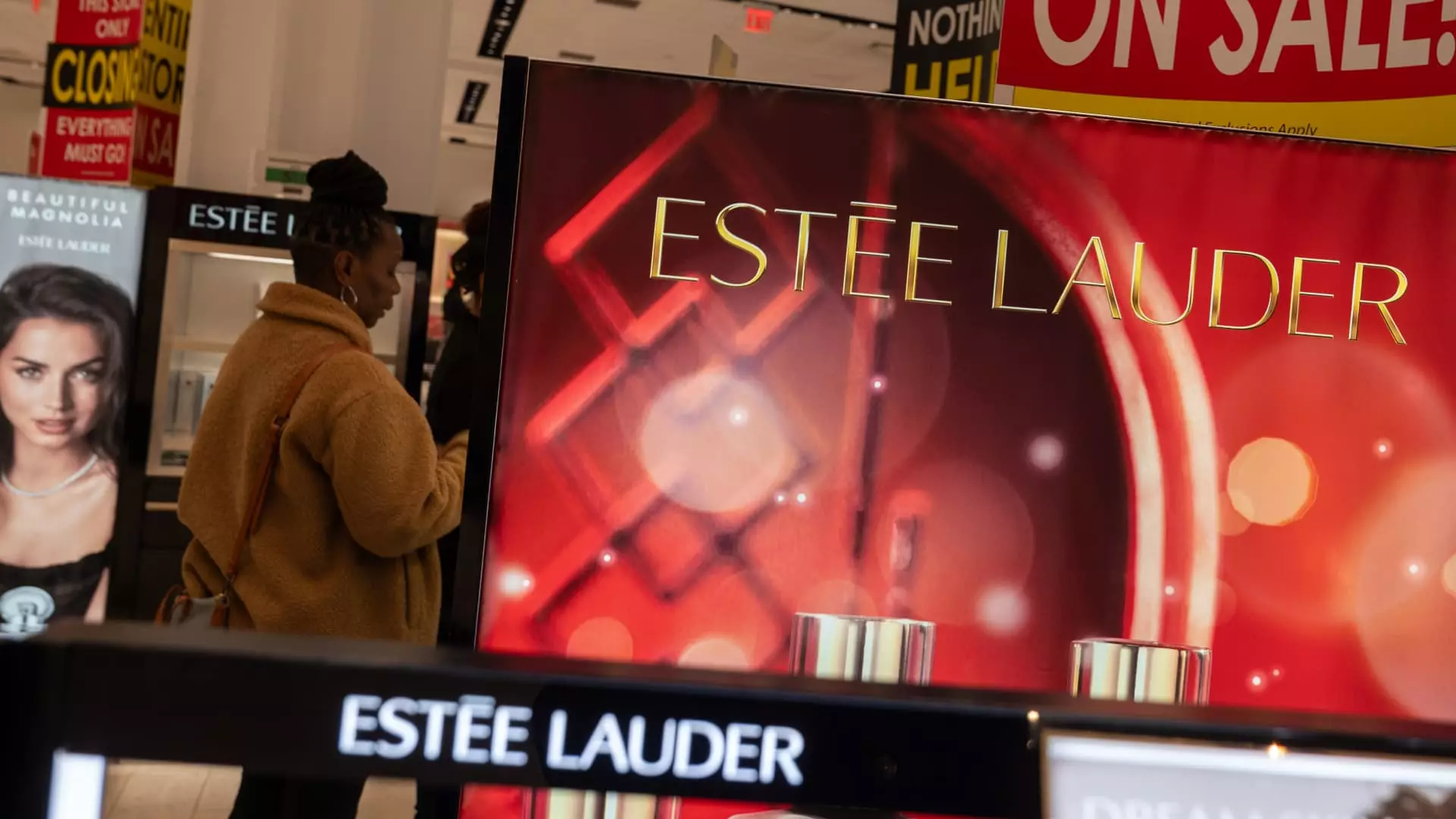The beauty sector recently experienced a significant downturn as major players like E.l.f. Beauty and Estee Lauder reported disappointing earnings, causing a ripple effect across the industry. E.l.f. Beauty, in particular, has faced stark challenges, closing out a week with shares plummeting nearly 29%, the largest drop since August 2018. Despite reporting revenue that beat analysts’ expectations for the fiscal third quarter, E.l.f. missed the mark on adjusted earnings per share and subsequently lowered its full-year guidance, indicating concerns over future performance.
The company’s recent earnings call revealed insights into the broader cosmetics market. CEO Tarang Amin highlighted a sector-wide decline of 5% in January, attributed to a combination of excessive holiday discounting and waning online engagement with beauty products. This suggests that consumer interest may be cooling, which could pose long-term challenges for brands reliant on both seasonal sales and digital marketing strategies. Additionally, the downgrading of E.l.f.’s stock by reputed analysts indicates a consensus that the company’s current trajectory may not align with investor expectations going forward.
Estee Lauder’s situation is no less troubling; shares dropped 22% over the same week, echoing some of the alarming trends observed with E.l.f. The company announced a significant workforce reduction, planning to cut between 5,800 and 7,000 jobs by fiscal year 2026, fueled by a decline in travel retail demand, especially in Asia. The alarming drop in share value occurred despite a stronger-than-expected second-quarter earnings report, raising questions about company management and strategic adaptability. CEO Stéphane de La Faverie’s admission of a loss of agility raises critical questions around the company’s ability to capitalize on growth opportunities in a rapidly shifting market.
Ulta Beauty and Coty also felt the strain, suffering declines of approximately 9% and 8%, respectively. Ulta’s worst week since April mirrors the challenging landscape as brands struggle to maintain consumer interest amid softening demand. The comment made by E.l.f.’s CEO about experiencing “softness” at Ulta further underscores that even established retail partners are facing pressures that could impact future sales.
The beauty industry must also navigate external pressures, such as tariffs imposed in response to geopolitical tensions. With China announcing tariffs on select U.S. imports, companies like E.l.f., which relies heavily on China for manufacturing, could feel the impact acutely. Although E.l.f.’s CEO expressed relief over the relatively low tariff of 10% compared to earlier proposals of 60%, the uncertainty these tariffs bring continues to loom large for the sector.
The recent downturn of beauty stocks paints a sobering picture of an industry in transition. Brands that have thrived in an era of impulsive consumer spending must now adapt rapidly or risk being left behind. As investors recalibrate their expectations, stakeholders will need to keep a close eye on how these companies respond to both internal challenges and broader economic shifts.

